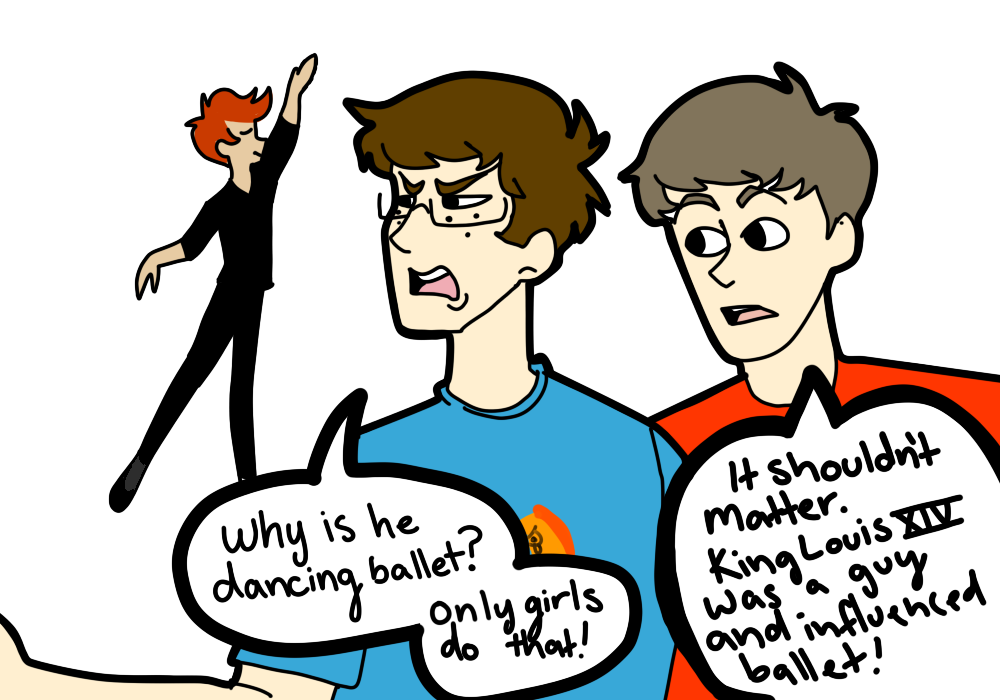There’s always been a stereotypical connotation attached to dancing. When people think of ballet, jazz or dance in general, they usually identify it as a very feminine activity.
Rarely do people associate dancing and men in the same category and if they do, people automatically assume he is gay.
As a straight, male dancer, I find it very frustrating to see people take these points of view because dance itself is universal.
Gender, race, or any classifications shouldn’t tie it down; it simply is a form of expression that is accessible to all. Although many people see dance as a female only activity, it isn’t. Men have crucial roles in the world of dance.
In all honestly, I used to think in that stereotypical way. Growing up, I had no desire to learn how to dance. From the many movies and T.V. shows I saw, they all connoted that dancing was for girls. I never saw any type of media that made me think otherwise. I too thought that if a guy danced, he was automatically a homosexual. How foolish was I.
If I had let those influences win, dance would’ve never been such a big part of my life like it is today.
I remember telling people I would meet that I danced. A lot of them responded with “Why?” “Well why not,” I said. They would usually respond with something along the lines of “why don’t you play like an actual sport? Have you ever tried [insert any male dominated sport here]. I feel you’re strong enough for it.”
As if dance was only for weaklings. People everywhere underestimate the amount of strength, skill and endurance dance takes.
In my personal experience, dancing with girls and lifting them is no easy feat. You have to be strong to lift your partners, lifting a 115 pound girl is no walk in the park for an average person.
When we take this discussion from the stage where the world of ballet, jazz, tap, etc. live and move it to the streets, those stereotypes are quickly thrown at the door.
All of a sudden if you’re a break-dancer or a b-boy, that’s deemed masculine. I won’t lie, any type of street dance is awesome, but it’s seen in a different light. That style of dance is seen as very male-oriented, and is believed to take an incredible amount of skill.
It’s right, being a street dancer takes an incredible amount of strength, but it takes as much strength to do ballet or jazz.
No genre of dance is more feminine or masculine than the other, rather the dancers use their bodies in different ways. One style might be more centered around being graceful, while the other requires you to be hard-hitting.
In our society today, graceful is associated with femininity, while being hard is associated with masculinity. When I tell people I primarily dance hip-hop they say “that’s awesome.”
However, when I tell them I also do ballet and jazz, their response is lukewarm. Their excitement level drops down. In my mind though, those genres are as intense as hip-hop.
Ultimately, dance shouldn’t be restricted to gender, or have one style be more masculine or feminine than the other.
If a man decides to dance, he shouldn’t be demeaned by these stereotypes. He shouldn’t feel ashamed or embarrassed because he likes to dance. I truly believe that dance is genderless.
Courtesy // Tiffany McGaughey



































